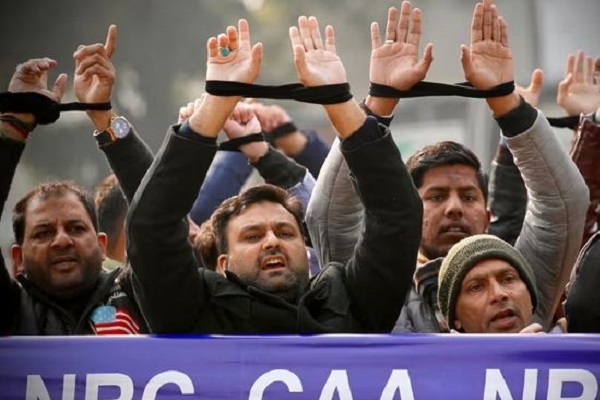India: ‘Discriminatory’ Law against Muslims Enacted by BJP Government

The Citizenship Amendment Act (CAA), as it is known, has drawn sharp criticism for its exclusion of Muslims.
The legislation, which fast-tracks citizenship for non-Muslim migrants from Pakistan, Afghanistan, and Bangladesh who settled in India before December 2014, has been decried by legal experts, activists, and opposition leaders, The Guardian reported on Tuesday.
The law's enactment follows a period of intense civil unrest, with protests engulfing the country and resulting in numerous arrests and over a hundred fatalities.
Despite the upheaval, the ruling Bharatiya Janata Party (BJP) pressed forward with the CAA, fulfilling a pre-election promise and invoking the legacy of India's constitutional framers to justify the law's religious criteria. Home Minister Amit Shah announced the law's implementation, framing it as a protective measure for persecuted minorities from neighboring countries.
Read More:
International human rights organizations, including Amnesty International, have condemned the CAA as discriminatory. The law has also faced resistance from state leaders, particularly in regions governed by opposition parties, who have vowed not to comply with its provisions. Nonetheless, the central government's new rules significantly curtail the states' autonomy in the citizenship process.
The law's implications extend beyond the political sphere, stirring existential fears among India's Muslim population over a potential national registry that could render them stateless.
The government has refuted these concerns, asserting that Indian Muslims are not the intended beneficiaries of the CAA.
The exclusion extends to persecuted Muslim minorities from neighboring nations, such as the Rohingya and Hazara, who find no refuge under the new law.
The CAA has also sparked dissent in regions like Assam, where locals fear cultural dilution from an influx of Hindu migrants.
Read More:
As the law takes effect, protests continue to resonate throughout the country, with Assam's indigenous and student groups leading the charge against what they perceive as an assault on their cultural identity.
“The CAA is not acceptable to us. The BJP government has today delivered the biggest blow to the Assamese people, our identity, and our culture. Our protest will continue,” said Samujjal Kumar Bhattacharjya, a leader of the All Assam students’ union.
Source: Agencies



